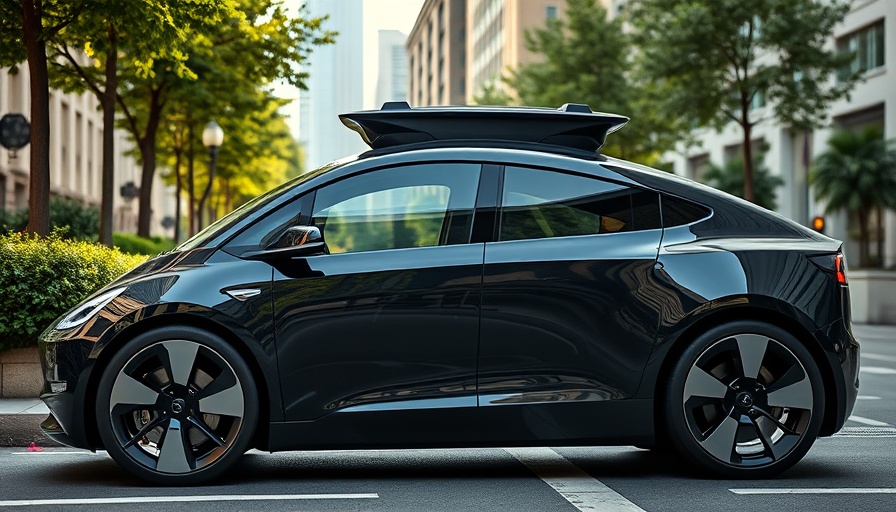
Tesla's Ambitious Plans for a Bay Area Taxi Service
Tesla, a company synonymous with innovation and electric vehicles, has announced plans to launch a taxi service in the busy San Francisco Bay Area. However, the automaker is facing legal challenges as its ambitious strategy hinges on operating with human drivers instead of the autonomous vehicles it has heavily promoted. The service, dubbed a "robotaxi" offering by Tesla, will commence by using standard vehicles driven by people, requiring compliance with California's stringent regulatory environment for ride-hailing services.
Legal Restrictions and the Path Forward
While Tesla has received a Transportation Charter Party permit to operate an employee-only taxi service, the law currently prohibits it from deploying autonomous vehicles for public transport. “Tesla is not allowed to test or transport the public (paid or unpaid) in an autonomous vehicle,” says Terrie Prosper, spokesperson for the California Public Utilities Commission (CPUC). Thus, the so-called robotaxi will have a driver seated in the vehicle, a detail Tesla seems to navigate ambiguously in its communications, suggesting a potential disconnect between regulatory strictures and corporate marketing narratives.
The Dual Realities of Innovation and Regulation
In discussions with investors, Tesla executives have tried to bridge this gap by touting the potential of autonomous services. During a recent earnings call, AI software VP Ashok Elluswamy remarked that the company is in discussions with government officials to gain approvals for future autonomous operations in the Bay Area. While this future vision resonates with Tesla’s longstanding ambition to lead in the driverless technology space, the present fact remains: safety and legal considerations dictate a more grounded starting point of employing human drivers.
A Balancing Act: Innovation vs. Compliance
The distinction between Tesla’s public messaging and its operational framework raises questions about the regulatory landscape of autonomous services within the state known for its strict measures on self-driving technology. As the company faces lawsuits for potentially misleading language surrounding its driver-assist features, clarity and accuracy in communication will be paramount. This scenario underscores broader implications in the tech news today surrounding how innovation must meet existing legal frameworks.
Consumer Perspectives: Trust and Transparency
The upcoming taxi service offers a chance for Tesla to rebuild trust with consumers who may feel misled by overzealous claims of self-driving capabilities. Addressing concerns about safety and technology honestly can pave the way for greater acceptance of future advancements. As consumers become more familiar with the nuances of autonomous vehicles, their expectations around trust and transparency will evolve, influencing the adoption of these new technologies.
Future Technology Trends Impacting the Transportation Sector
The transportation industry is on the precipice of a seismic shift, driven by rapid advancements in robotics innovations and artificial intelligence updates. As companies jockey for position in the race toward autonomous travel, understanding the implications of Tesla's moves can shine light on what consumers might expect from other players in the market. Future trends such as vehicle-to-everything (V2X) communication and enhanced safety algorithms will likely shape the operational capacity of taxi services—regardless of the company behind the wheel.
Conclusion: What This Means for Tesla and the Future
Tesla’s venture into the taxi market in San Francisco illustrates the delicate dance between technological ambition and regulatory compliance. As the company tries to make its mark in a space dominated by cautious regulations, it remains to be seen how effectively it can align its branding with the actual experience of its services. This taxi service may serve as a litmus test, revealing whether Tesla can not only innovate but also adhere to the laws governing the very technologies it champions.
As the conversation continues about Tesla's plans for a robotaxi service, it's crucial for consumers and stakeholders to stay informed about developments in the regulatory environment and tech updates. For those interested in the forefront of technology and its implications, engaging with these debates will provide valuable insights into the future of transportation and beyond.
 Add Row
Add Row  Add
Add 




Write A Comment